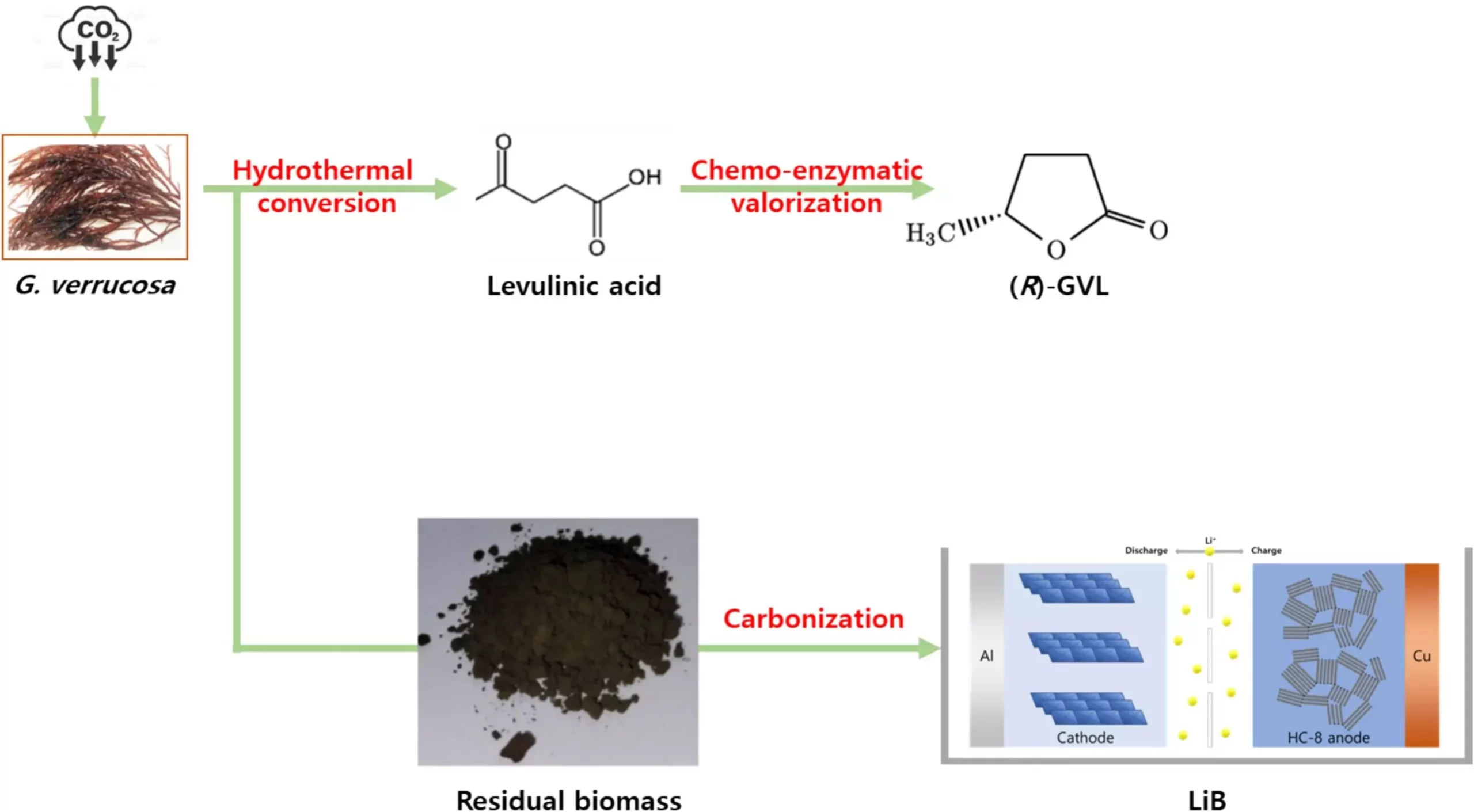Recent advancements in biotechnology have unveiled the potential of seaweeds, particularly Kkosiraegi, as a versatile resource for producing bio-aviation fuels and energy storage materials. This revolutionary method, developed by Dr. Kyoungseon Min and her team at the Gwangju Clean Energy Research Center, signals a shift in how we perceive and utilize marine biomass. Their findings, published in the Chemical Engineering Journal, illustrate a sophisticated, one-step enzymatic process that not only addresses current energy challenges but also presents opportunities for valuable pharmaceutical applications.
The conventional production methods for bio-aviation fuels typically depend on complex fermentation processes that are both costly and inefficient. One major drawback is the significant requirement of high-pressure hydrogen to initiate reactions, which add to the financial burden of production. Furthermore, only a fraction—around 15%—of the fermentable sugars from biomass are converted into usable fuel precursors, prompting an urgent need for enhanced methodologies.
In contrast, Dr. Min’s team has developed an innovative levulinic acid-based process that simplifies this conversion. By employing an acid treatment, seaweed can be effortlessly transformed into levulinic acid. Subsequently, an engineered enzyme takes center stage, facilitating the generation of (R)-gamma-valerolactone, or (R)-GVL, with an astonishing yield enhancement of tenfold compared to traditional methods that rely on microbial fermentation. This breakthrough not only boosts efficiency but also eliminates the intricacies associated with previous biofuel production techniques.
What sets this research apart is the dual functionality of the seaweed byproducts. While conventional methods often leave a significant portion of biomass as waste, this approach reimagines the role of residual materials. After the extraction of levulinic acid, the leftover Kkosiraegi can be transformed into “hard carbon,” a promising material for use in lithium-ion batteries. The research team has successfully demonstrated the effectiveness of this carbonized residue, confirming its desirable characteristics for energy storage applications.
The significance of this new valorization pathway extends beyond eco-friendliness; it also contributes to a circular economy. By repurposing biomass, the technology not only minimizes waste but also promotes sustainable practices in multiple industrial sectors, from energy to pharmaceuticals.
The emergence of bio-aviation fuels derived from seaweed marks a substantial shift in the aviation industry’s approach to sustainability. Current projections suggest that by the year 2070, eco-friendly biofuels could comprise as much as 35% of the total aviation market, highlighting a growing reliance on renewable energy sources. Importantly, these biofuels can drastically reduce greenhouse gas emissions—by as much as 82% when compared to traditional fossil fuels.
This research aligns with international goals to curb carbon footprints and transition to more sustainable energy models. By leveraging seaweed’s unique properties, not only can the aviation sector address immediate environmental challenges, but it can also help in fulfilling global emissions targets.
Beyond energy, the enantioselective production of (R)-GVL demonstrates significant promise for the biopharmaceutical industry. This compound can serve as an intricate building block for hypertension medications, which require the exclusive use of the (R)-form to ensure efficacy. The precision of the engineered enzyme developed by Dr. Min’s team allows for the production of (R)-GVL with an unprecedented accuracy of over 99.999%, a feat that has eluded researchers until now.
This advancement represents a transformative leap for pharmaceutical development, providing new avenues for drug formulation while addressing the long-standing barrier of simultaneous isomer production that complicates applications in bioplastics and other areas.
As Dr. Min astutely pointed out, Korea’s geographical advantage as a nation surrounded by seas positions it favorably to capitalize on seaweed resources. This pioneering work will likely spur further research and investment into marine biomass, enhancing the development of technologies that generate high-value products while promoting sustainability.
The innovative processes developed by this research team not only carve the path for sustainable biofuels and pharmaceuticals but also encourage the world to rethink the use of natural resources. By fostering efficiency and reducing waste, such advancements could become cornerstones of future industries, paving the way for a cleaner and more sustainable global economy.


Leave a Reply